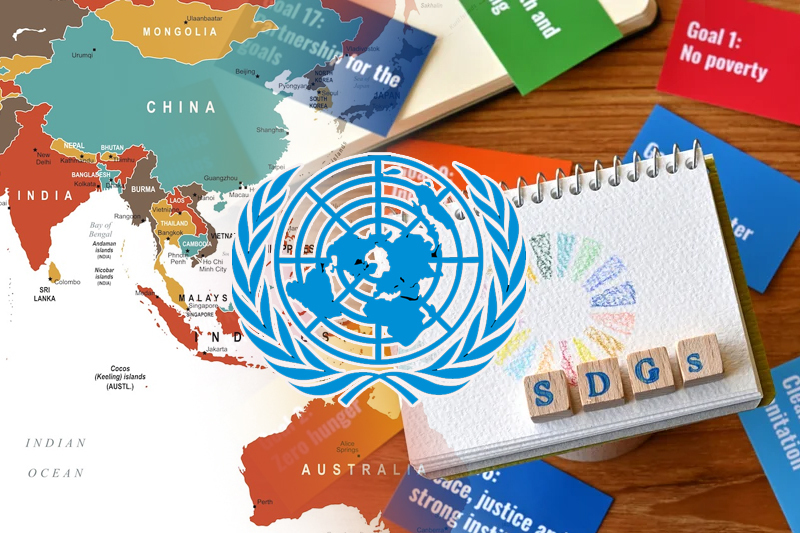
UN Says Asia Pacific Region Won’t Meet SDGs by 2030
ISLAMABAD: As the total number of years needed to achieve the SDG targets in the region has increased, the Asia-Pacific region will miss the 2030 target year for the Sustainable Development Goals by several decades, according to a United Nations report released on Wednesday.
The UN Economic and Social Commission for Asia and the Pacific (UN-ESCAP) published the SDG Progress Report 2023, which states that the average overall progress towards achieving all 17 SDGs in the region has gradually increased from 4.4 percent in 2017 to 14.4 percent in 2022.
The targets still have a long way to go before we reach the halfway point of achieving the SDGs. The Asia-Pacific region will miss 90 percent of the 118 measurable targets by 2030, according to the annual flagship publication in collaboration with seven other UN agencies, looking beyond the goals and at the target level.
The report stated that to achieve a sustainable, prosperous, and inclusive future, “we must not give up on the ambition to achieve the goals, but we need to act quickly, think smarter, make intelligent investments, strengthen global partnerships, and build on the collective commitment to the SDGs.”
Keep Reading
Since 2015, several challenges have arisen that should serve to highlight the urgency of taking action, including waning multilateralism and cooperation for global sustainable development, the migrant crisis, climate change, trade wars, worsening inequality, the health crisis, and geopolitical conflict. Despite recently occurring unprecedented challenges, nations all over the world have shown a persistent dedication to sustainable development.
The SDGs have frequently been used as a framework for dealing with and overcoming crises. Achieving the SDGs by 2030, though, would require tremendous effort eight years after their adoption.
skilled attendance at birth
According to the report, skilled birth attendance is increasing in Pakistan, where it now accounts for about 69% of births. The ministry of health made firm commitments to enhance midwifery education and training as a key strategy for lowering maternal and infant mortality, to improving quality and access to emergency obstetric and newborn care.
Pakistan invested in upgrading the midwifery faculty for pre-service education as well as in-service training in emergency obstetric and newborn care for midwives already deployed in facilities in collaboration with midwifery associations and UNFPA.



